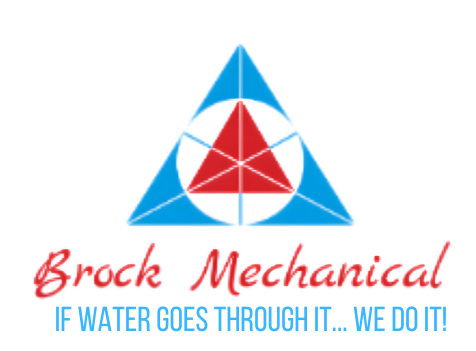Managing wastewater is an enormously complex challenge in both residential and commercial properties, especially in places like Howell, MI, where sewer cleaning is essential. A daunting decision that often arises is choosing between a sump pump and a sewage pump. Although both types of pumps are used to manage wastewater, their mechanisms and purposes differ significantly. This difference can lead to debates about which one delivers the optimal results.
Understanding the different functions of both solutions is the key to answering the right answer about which is best. In this blog, we will provide insights to help you make an informed decision. We have incorporated an in-depth comparison between the two systems. Without any delay, let's have a look at it!
Understanding the Basics: What Are Sump Pumps and Sewage Pumps?
It is essential to have an understanding of what sump pumps and sewage pumps are and how they help. The following is the information about both:
Sump Pump
A sump pump is a vital device to prevent excess water from collecting in the foundation or basement of a building. Installing in a specially constructed sump pit is used to pump away water from houses into an appropriate drain, such as a municipal storm drain or dry well.
Sewage Pump
Sewage pumps are designed to pump away wastewater from properties. They're most often installed on properties with bathrooms beneath a sewer. Their function involves pumping waste upwards until gravity takes over and transports it directly back down into the system.
Can a sewage pump be used as a sump pump?
One most frequently asked question in the wastewater management circle is, "Can a sewage pump be used as a sump pump?" While technically, it would be possible as it also pumps water, using one for sump pit applications may not always be cost-effective or efficient. But, sewage pumps were specifically designed to pump out solid waste, making them more robust and, therefore, more costly than sump pumps. Using them may therefore be overkill and may not result in cost savings.
Can a sump pump be used for sewage?
Unfortunately, no. Sump pumps are specifically designed for clean water environments and shouldn't replace sewage pumps. Using them for sewage can result in damage or clogging of their internal components, impacting their efficiency. While sump pumps handle clean water and minor ground seepage effectively, they aren't suited for treating sewage or pumping out waste materials.
Difference between a sump pump and a sewage pump
You must understand the distinction between sump pumps and sewage pumps. It will help you to choose an ideal one for your specific requirements. Let's explore some factors and discover how professional sewage or sump pump installation can simplify your life:
Purpose
As mentioned earlier, sump pumps are specifically used to prevent basement flooding by pumping out excess water from the basement. They're most frequently utilized in areas prone to flooding or as extra protection from water damage.
In contrast, sewage pumps are used to pump away waste water from buildings into a sewer. It includes waste from bathrooms, laundry machines, or kitchen sinks. Now, let's move on to check the design and installation of the systems.
Design and Installation
Sump pumps are typically installed in sump basins that collect excess water from drains, collecting any additional accumulation. When the level reaches a certain threshold, the pump turns on and pumps away the liquid.
On the other hand, sewage pumps are typically installed within a sewage basin. These systems collect wastewater from various drains before pumping it directly into a sewer system for disposal.
Capability
Sump pumps are intended to handle clear water. While small particles may pass through them without issue, these pumps cannot handle larger solid waste materials such as sewage. Therefore, sump pumps should not be used for pumping waste-containing waters such as sewerage.
Conversely, sewage pumps can handle larger solids and are designed to clear waste out of buildings. However, they should not be relied upon during extreme flooding situations. It may not provide the desired results at that time.
Maintenance
Due to managing solids and waste, sewage pumps require more stringent maintenance. Furthermore, using sealed lids prevents any potential odor leakage. Conversely, sump pumps typically have less stringent maintenance needs when dealing primarily with liquids.
Lifespan & Cost
The lifespan of pumps depends largely on their quality, use, and maintenance. Generally speaking, sump pumps tend to last longer due to being subjected to less abrasive water. Solid waste pumps may wear out sooner due to their complex mechanism and installation process. Furthermore, costs related to such installations tend to be more costly.
Making the Right Choice: Sump Pump vs. Sewage Pump
The "Sewage pump vs sump pump" debate isn't about which is better but which fits your specific needs best. Sump pumps may be your go-to choice for basement flooding or excessive groundwater issues. But sewage pumps should be utilized if you require pumping sewage or wastewater from a property.
Your individual situation and requirements are at the core of choosing the ideal pump to handle your wastewater. For tailored advice and expert opinions, contact Brock Mechanical Plumbing Contractor. As seasoned professionals, we'll guide you towards the right wastewater solution for your property.


